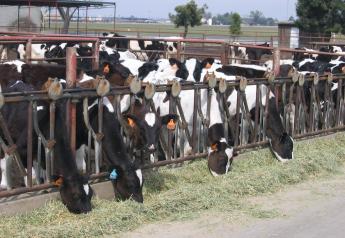China Releases Budget, GDP and Defense Plans, Comments on Taiwan, in Report

Biden launches ‘strike force’ to tackle pricing practices across various sectors, including food and groceries
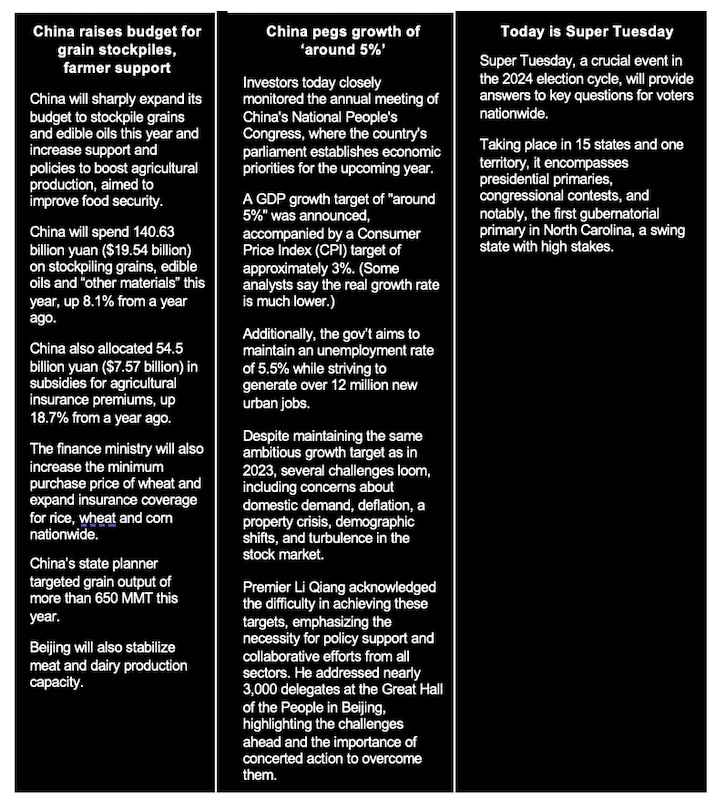
|
Today’s Digital Newspaper |
MARKET FOCUS
- Bitcoin nearing record high of $68,982.20, established in November 2021
- Gold futures prices hit record high of $2,135.80 in overnight trading
- Nippon Steel aims to secure the United Steelworkers (USW) union's support
- Kubota exploring producing batteries internally for its electric farm machinery
- Target reports earnings and revenue surpassing Wall Street's projections
- Ford Motor reports significant increase in vehicle sales for February
- Tesla announces new discounts
- $200 billion: Jeff Bezos’ net worth, according to Bloomberg
- Iran flouting U.S. sanctions by significantly increasing exports of LPG
- Eurozone business activity stabilizes, but still weak
- India urges state refiners to boost rupee payments to Persian Gulf suppliers
- Port of L.A. experienced consistent year-over-year increases in import volume recently
- Houthi militants attacked and damaged MSC container vessel in the Gulf of Aden
- Ag markets today
- U.S. rice industry fights against rice-shaped vegetable imposters, pushes clear labeling
- Indonesia expects to import more wheat this year
- Malaysian exchange to launch soyoil futures
- Ag trade update
- NWS weather outlook
- Pro Farmer First Thing Today items
CONGRESS
- House Budget panel to mark up a FY 2025 budget resolution on Thursday, March 7
ISRAEL/HAMAS CONFLICT
- VP Harris meets Israeli rival Gantz amid U.S./Israel tension
RUSSIA & UKRAINE
- Turkish oil terminal in Dortyol ceases Russian crude oil imports due to U.S. pressure
POLICY
- Animal rights groups push measure in Sonoma County, California, alarming farmers
- USDA's ERP payments steady, Phase 2 sees slight increase
CHINA
- China sets around 5% growth target, issues special bonds amid economic challenges
ENERGY & CLIMATE CHANGE
- Recent assessment shows 22% drop in U.S. soybean oil carbon footprint
LIVESTOCK, NUTRITION & FOOD INDUSTRY
- President Biden to hold Competition Council meeting this afternoon
- Vilsack and FTC chair address nutrition and competition concerns in food industry
POLITICS & ELECTIONS
- SCOTUS rules states cannot enforce 14th Amendment to disqualify Trump
- Thune hopes to replace McConnell as Republican leader in Senate
- Barrasso opts to run for whip next Congress
- Super Tuesday primaries poised to solidify Trump's path to Republican nomination
|
MARKET FOCUS |
— Equities today: The Dow opened around 120 points lower. The Nikkei on Monday burst above 40,000 points for the first time ever, taking its gains this year to 20%. The yen is back below 150.00 per dollar, fueling speculation that Japanese authorities might soon intervene to support the currency. In Asia, Japan flat. Hong Kong -2.6%. China +0.3%. India -0.3%. In Europe, at midday, London flat. Paris flat. Frankfurt flat.
U.S. equities yesterday: All three major indices opened the week with losses as traders are eying two days of testimony by Fed Chair Jerome Powell on Wednesday and Thursday and the key Employment report on Friday. The Dow was down 97.55 points, 0.25%, at 38.989.83. The Nasdaq declined 67.43 points, 0.41%, at 16,207.51. The S&P 500 declined 6 1.3 points, 0.12%, at 5,130.95.
— Nippon Steel aims to secure the United Steelworkers (USW) union's support by April's end for its acquisition of U.S. Steel, racing against the U.S. presidential election deadline. The acquisition has political implications since former President Donald Trump vowed to block it if re-elected. Nippon Steel intends to complete the purchase before November, aiming for a six-month process starting in April, pending approval at U.S. Steel's shareholders meeting and clearance from the Committee on Foreign Investment in the United States (CFIUS). Despite initial opposition from the USW and Congress, Nippon Steel hopes to overcome political hurdles through dialogue and recently signed a confidentiality agreement with the USW. With primary elections in Pennsylvania scheduled for April 23, Nippon Steel aims to resolve talks with the USW promptly. The company asserts that the acquisition, which aligns with its strategy to expand overseas operations, will strengthen economic security and contribute to U.S. industry development through decarbonization technology. Nippon Steel anticipates leveraging the U.S. market's stability and growing demand for electric vehicles to expand sales and achieve its goal of becoming the world's leading steelmaker.
— Kubota, a Japanese agricultural equipment manufacturer, is exploring the possibility of producing batteries internally for its electric farm machinery. With upcoming product launches in the U.S. and Europe, Kubota anticipates increased demand for electric versions of its farm equipment. Currently, the company manufactures diesel engines in Thailand and Japan, shipping them to various markets for final assembly. Similarly, Kubota aims to produce batteries locally in Thailand for Asia and domestically in Japan, the U.S., and Europe. While Kubota presently rents out electric tractors in Europe and assembles them with batteries in existing facilities, the company may establish a dedicated battery factory in Japan depending on demand. By 2030, Kubota plans to introduce small and midsize electric tractors, mowers, and carriers in the U.S. and Europe, aligning release schedules with diesel and emissions regulations in each country.
— Target reported earnings and revenue for the crucial holiday quarter that surpassed Wall Street's projections. However, the company also anticipates sluggish sales for 2024. Despite this, Target emphasized its advancement since experiencing a decline in discretionary spending, noting growth in profits compared to the same period last year. The retailer disclosed that its comparable sales, excluding online sales and sales from new stores, have decreased for the third consecutive quarter. Nonetheless, Target's shares surged approximately 8% in premarket trading.
— Ford Motor reported a significant increase in vehicle sales for February compared to the same period last year, driven by strong sales of hybrid and electric models. The company sold 174,192 vehicles, marking a 10.5% increase from last year, with battery electric vehicles accounting for 3.7% of sales and all-electric vehicles and hybrids making up 10.6% of the month's sales. Ford's all-electric vehicle sales surged by about 80%, while hybrid vehicle sales rose by approximately 32%.
— Tesla announced new discounts, offering U.S. buyers 5,000 miles of free Supercharging on select trade-ins through March and providing incentives of up to $5,000 on Model 3 and Model Y vehicles in stock in China. Industry data shows that U.S. auto industry incentives have increased to about 5.7% of the average transaction price, up from 2.8% a year ago, contributing to February's car sales reaching an annualized pace of 15.8 million vehicles. In a separate development, the lawyers who secured a court ruling canceling a $55.8 billion pay package for Tesla CEO Elon Musk are seeking $5.6 billion in Tesla stock to cover their legal fees.
— Ag markets today: Corn, soybean and wheat futures pulled back from Monday’s price gains during the overnight session. As of 7:30 a.m. ET, corn futures were trading 1 to 2 cents lower, soybeans were 4 to 6 cents lower, winter wheat markets were mostly 5 to 7 cents lower and spring wheat was around a penny lower. Front-month crude oil futures were around 75 cents lower, and the U.S. dollar index was trading just above unchanged.
Beef packer margins improving. Choice boxed beef prices rose another $1.02 on Monday, though Select dropped 57 cents. While last week’s average cash cattle price firmed 35 cents, gains in wholesale beef prices outpaced the cash market. Packer cutting margins remain in the red, but are notably better than recent weeks.
Cash hog index climbing slowly. The CME lean hog index is up another 15 cents to $80.41 as of March 1. While the seasonal rally continues, it has slowed, which caused traders to narrow the premium futures hold to the cash index. As of Monday’s close, April hogs held a $5.865 premium to today’s cash quote, slightly less than the five-year average cash gain of $6.30 from now until mid-April.
— Agriculture markets yesterday:
- Corn: May corn rose 5 1/4 cents to $4.30, the highest close since Feb. 20.
- Soy complex: May soybeans rose 3 3/4 cents to $11.55, while May soymeal rose $1.20 to $333.50. Both closed near session lows. May soyoil closed 1 point higher to 45.17 cents.
- Wheat: May SRW wheat rose 6 1/4 cents at $5.64 and hit a contract low early on. May HRW wheat closed up 15 3/4 cents at $5.80 1/4. Both markets closed near the session highs. May spring wheat futures rallied 13 1/2 cents to $6.57 1/4.
- Cotton: May cotton fell 99 cents to 94.58 cents, the lowest close since Feb. 23.
- Cattle: April live cattle dropped $1.775 to $186.675. May feeder cattle fell $2.40 to $257.775. Prices closed near the session lows.
- Hogs: April lean hog futures dropped $1.80 to $86.275 and settled nearer session lows.
— Of note:
- Australia’s prime minister will unveil a A$2 billion financing facility as the centerpiece of a new package to drive trade and investment in Southeast Asia, strengthening regional ties at a time of uncertainty over the U.S./China economic relationship.
- $200 billion: Jeff Bezos’ net worth, according to Bloomberg, allowing him to surpass Elon Musk, whose personal wealth was $198 billion, as the world’s richest individual. Bezos, Musk and LVMH chief Bernard Arnault have rotated places in recent years atop the Bloomberg Billionaires Index, which measures personal wealth based on changes in markets, the economy and other reporting.
- Is China’s 5% GDP goal aspirational? “The around 5% target is probably intended to boost confidence. But the specific measures unveiled may have limited impact on lifting sentiment,” said Jacqueline Rong, chief China economist at BNP Paribas SA. “We think it is not easy to achieve the growth target,” she added, noting the bank is holding its forecast for this year at 4.5%.
- Working on the railroad. “If and when the growth comes back the right way, then jobs should grow.” — Jim Barber, former chief operating officer at United Parcel Service and Ancora’s choice to replace Alan Shaw as CEO of Norfolk Southern.
— Iran is boldly flouting U.S. sanctions by significantly increasing its exports of liquefied petroleum gas (LPG), indicating that American efforts to curtail the Islamic Republic's energy sales are ineffective. Despite facing sanctions, Iran emerged as the largest Middle Eastern provider of LPG last year, experiencing a remarkable 28% surge in exports. This data is derived from ship-tracking records and analysis conducted by consultant Facts Global Energy. The firm predicts that Iran's LPG exports will continue to rise throughout this year, further demonstrating the resilience of Iran's energy sector in the face of international pressure.
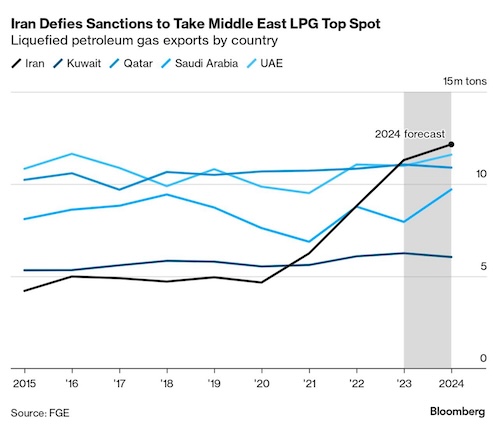
— Eurozone business activity stabilizes, but still weak. The HCOB euro zone composite purchasing managers index (PMI) compiled by S&P Global rose to 49.2 in February, up from a preliminary estimate of 48.9 and surpassing January’s 47.9. The PMI was the highest in eight months, with service sector activity showing growth for the first time since July of last year. However, manufacturing output continued to contract. Euro zone producer prices fell 8.6% annually in January, marking a moderation from a revised 10.7% drop recorded in December.
— U.S. rice industry fights against rice-shaped vegetable imposters, pushes for clear labeling. The U.S. rice industry has been combating the emergence of rice pretenders — vegetables processed into rice-like shapes. Robbie Trahan, chair of USA Rice’s Domestic Promotion Committee, emphasized that rice is a grain, not a shape, and urged clarity in labeling to prevent confusion.
Of note: Despite requesting a standard of identity (SOI) from the Food & Drug Administration, no action was taken, prompting USA Rice to reach out to manufacturers to label their products as "riced" instead of "rice." While some companies complied, others did not, prompting USA Rice to address the issue further.
The group focused on a particular brand, RightRice, and petitioned to cancel its trademark registration, arguing that the name was deceptive. In late November, the U.S. Patent & Trademark Office’s Trademark Trial and Appeal Board (TTAB) granted USA Rice’s petition, leading to the cancellation of the trademark registration. This decision requires Planting Hope Brands, the company behind RightRice, to adjust its packaging and marketing.
USA Rice emphasizes the importance of consumer clarity in making informed purchasing decisions and criticized the misuse of trademark registration to mislead consumers. Despite this victory, USA Rice believes there is room for both real rice and rice alternatives in the market, as long as consumers are not deceived.
Market perspectives:
— Outside markets: The U.S. dollar index was firmer, with the euro, yen and British pound all weaker against the greenback. The yield on the 10-year U.S. Treasury note was lower, trading around 4.16%, with a lower tone in global government bond yields. Crude oil futures were lower, with U.S. crude around $77.95 per barrel and Brent around $82.05 per barrel. Gold and silver futures were higher ahead of US market action, with gold around $2,135 per troy ounce and silver around $24.22 per troy ounce.
— Bitcoin is nearing its record high of $68,982.20, established in November 2021. On Monday, the leading cryptocurrency briefly surpassed $68,000, as reported by Coin Metrics. Last week, Bitcoin saw a significant increase of approximately 21%, although the momentum slowed over the weekend. Concurrently, other cryptocurrencies such as ether and meme coin Dogecoin experienced upward surges on Monday. Additionally, stocks related to the crypto space, like Coinbase and Microstrategy, saw notable gains of 11% and 24%, respectively.
— India’s central bank asked major state refiners to press Persian Gulf suppliers to accept at least 10% of oil payments in rupees in a move designed to promote the currency and cut dollar dependence. Link for details via Bloomberg.
— Gold futures prices hit a record high of $2,135.80 in overnight trading. The yellow metal is getting a boost from ideas the major central banks this year will ease their monetary policies, which would in turn stimulate better demand for metals. Gold has added almost $100 in the past five sessions, fueled by a combination of expectations for monetary easing, geopolitical tensions and the risk of a pullback in equity markets. The scale of the recent move has surprised some market watchers, who say it may be partially driven by momentum.
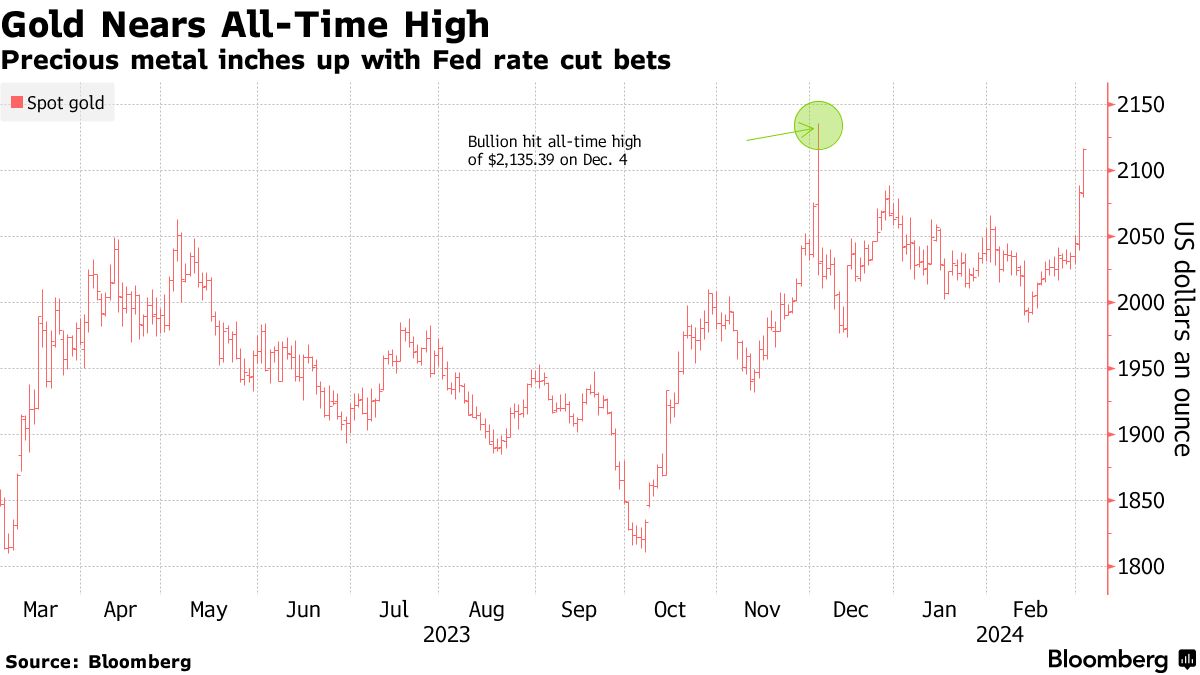
— Port of Los Angeles has experienced consistent year-over-year increases in import volume recently. However, its business with China is projected to decrease to approximately 45% of the total volume, down from over 50% in previous years, according to the executive director of the port, which is the busiest gateway for seaborne trade in the nation. Despite this decline, China remains the dominant market for the Port of Los Angeles, accounting for about half of its freight activity thus far this year.
Gene Seroka, speaking on Bloomberg TV, anticipates a further decrease in the port's engagement with China over the next few years, potentially dropping into the mid-40s percentage-wise, while still maintaining a strong position as the top market. Additionally, Seroka noted a rising trend in shipments from Vietnam, Thailand, Indonesia, and India, indicating a diversification of trade partners for the port. Link to Bloomberg report.
— Houthi militants attacked and damaged an MSC container vessel in the Gulf of Aden, as the Iran-backed group continues to roil shipping in the region. Meanwhile, a ship sunk after a earlier attack poses a new threat — environmental disaster.
— Indonesia expects to import more wheat this year. Indonesia will likely import larger volumes of wheat, driven by higher demand for flour and animal feed, a senior industry official said. Last year, the country imported 10.87 MMT of wheat. Indonesia’s flour consumption is expected to increase 5%, while reduced corn output last year will increase feed wheat needs.
— Malaysian exchange to launch soyoil futures. Malaysia’s commodity exchange will launch a soyoil futures contract on March 18 to help arbitrage between soybean and palm oil contracts. The exchange will use the settlement price of the soyoil futures contract on China’s Dalian Commodity Exchange as the basis for calculating the settlement price for its new U.S. dollar-denominated soyoil futures.
— Ag trade update: China purchased at least 65,000 MT of Ukrainian corn. Jordan purchased 60,000 MT of optional origin hard milling wheat. South Korea purchased around 120,000 MT of optional origin feed wheat. Egypt tendered to buy 50,000 MT of optional origin raw cane sugar. Turkey tendered to sell 150,000 MT of durum wheat.
— NWS weather outlook: A wet weather pattern for large areas to the east of the Mississippi River... ...Heavy higher elevation snows continue for northern portions of the West Tuesday with improving conditions by Wednesday... ...Much above average temperatures expected for much of the lower 48 to the east of the Rockies over the next few days.

Items in Pro Farmer's First Thing Today include:
• Grains weaker overnight
• Cordonnier leaves South American crop estimates unchanged
• Australia expects bigger 2024-25 wheat crop as weather improves
• China’s EV market in spotlight during annual parliamentary meetings
|
CONGRESS |
— House Budget Committee plans to mark up a FY 2025 budget resolution on Thursday, March 7, ahead of President Biden's budget proposal on March 11. The resolution aims to balance the budget within 10 years. This move is unusual, occurring before the president's budget submission and even before Congress has finalized FY 2024 spending bills. The markup coincides with the State of the Union address and comes after the president's budget submission deadline, traditionally in early February.
Of note: The budget resolution provides a framework for defense and nondefense discretionary spending levels, though lawmakers often engage in informal negotiations and detailed debates later in the process.
|
ISRAEL/HAMAS CONFLICT |
— VP Harris meets Israeli rival Gantz amid U.S./Israel tension. Vice President Kamala Harris held a meeting with Benny Gantz, a centrist political figure and rival of Israeli Prime Minister Benjamin Netanyahu, amid rising tension between the U.S. and Israel. This meeting, not sanctioned by Netanyahu, signifies growing frustration within the White House towards the Israeli government. The encounter served as a significant test for President Joe Biden's relationship with Netanyahu. Tensions have escalated due to Israel's reluctance to reduce the conflict in Gaza and its challenges in delivering humanitarian aid to Palestinian civilians.
Of note: Senate Majority Leader Chuck Schumer (D-N.Y.) and House Minority Leader Hakeem Jeffries (D-N.Y.) are both meeting privately today Gantz. But House Speaker Mike Johnson (R-La.) won’t meet with Gantz, according to reports. Gantz met with Senate Minority Leader Mitch McConnell (R-Ky.) on Monday.
Netanyahu “made it clear to Minister Gantz that the State of Israel only has one prime minister,” according to Ynet, an Israeli media outlet. The Israeli embassy isn’t involved with Gantz’s visit.
|
RUSSIA/UKRAINE |
— Turkish oil terminal in Dortyol has decided to cease Russian crude oil imports due to increased sanctions pressure from the U.S. Global Terminal Services (GTS), which operates the terminal, announced its decision in late February 2024, citing a commitment to comply with all sanctions, including the G7 price cap on Russian oil. Despite following existing sanctions, GTS declared that it would no longer accept any products of Russian origin or those loaded from Russian ports as an additional precautionary measure. The firm clarified that cargoes nominated before the ban will still be accepted at the terminal. Last year, the terminal received a record 11.74 million barrels of Russian crude oil and fuel, with exports reaching 24.7 million barrels. This decision aims to mitigate the impact of activities beyond the terminal's control and ensure compliance with applicable sanctions regulations.
|
POLICY UPDATE |
— Animal rights groups have submitted 37,000 signatures to qualify a ballot measure in Sonoma County, California, alarming farmers statewide. The initiative, led by the Coalition to End Factory Farms, seeks to ban concentrated animal feeding operations. To qualify for the November ballot, they need 19,746 signatures. Supporters estimate that 50 to 60 agricultural operations in Sonoma County would be impacted, facing closure or significant operational changes. The local Farm Bureau warns of severe consequences for Sonoma and potentially other counties if similar efforts are pursued elsewhere.
— USDA's ERP payments steady, Phase 2 sees slight increase. USDA's efforts to distribute final payments under Phase 1 of the Emergency Relief Program (ERP) have seemingly succeeded, with total ERP payments remaining relatively unchanged as of March 3. The total ERP payments stand at $8.63 billion, with Phase 1 payments remaining at $7.75 billion, consistent with the previous week. Phase 2 ERP payments have seen a slight increase, rising from $883.1 million to $883.2 million compared to the prior week.
|
CHINA UPDATE |
— China sets around 5% growth target, issues special bonds amid economic challenges. China aims for around 5% growth despite economic headwinds, issuing special bonds for the fourth time in 25 years to tackle challenges. Premier Li Qiang acknowledges difficulty in meeting targets, signaling increased intervention. The move reflects concerns over sustaining growth amidst decisions to address long-term imbalances and geopolitical tensions.
Premier Li Qiang acknowledged the challenges facing the world’s second-largest economy as he delivered his first work report to the national parliament at its opening Tuesday. “It is not easy for us to realize these targets,” he told thousands of delegates assembled at the Great Hall of the People in Beijing. “We need policy support and joint efforts from all fronts.”
China named some specific industries for innovation including "new energy cars" and "new material," and pointed to development plans for quantum computing, big data and artificial intelligence. It's part of a self-sufficiency drive that saw the central government spend 3.3 trillion yuan ($417 billion) on research last year, or about 2.6% of total GDP.
Key: Beijing’s military budget will increase 7.2%, in line with last year’s rise despite a slowing economy and making China the second largest spender after the U.S. globally. This military budget of Rmb1.67 trillion ($232 billion) has more than doubled over the past decade under Chinese leader Xi Jinping. This marks the third year in a row of defense outlays growing more than 7%, even as the economy continues to slow down. U.S. lawmakers and experts have argued that the actual military expenditures are far higher than official figures, thanks to classified expenditures that are not included. Last September, U.S. Senator Dan Sullivan (R-Alaska), a member of the Senate Armed Services Committee, revealed that China's "real" military budget was closer to around $700 billion, citing a briefing from intelligence officials. The figure, if accurate, would be over three times what was in China's official military spending plan.
Perspective: Defense spending is a core part of the Chinese national budget, taking up about 40% of the expected overall central government expenditure of 4.152 trillion yuan. The money earmarked for the military is about 10 times as much as the education budget, and almost five times more than the amount budgeted for science and technology. President Xi Jinping has emphasized the significance of preparing for the 100th anniversary of the establishment of the People's Liberation Army in 2027.
Analysts caution about achieving the ambitious GDP target amid property slump, deflationary pressures, and tepid consumer demand. Beijing hints at prioritizing technological innovation and greater self-reliance, while addressing the property crisis with a new development model. Falling foreign investment poses additional challenges, countered by pledges to lift market-access restrictions. Analysts in a Bloomberg survey forecast the economy would likely expand by 4.6% this year, underscoring the challenges facing policymakers as they try to resist big stimulus.
Global investors need to accept that slow growth is the new norm, says Yu Jie, a senior fellow on China at Chatham House, a think tank. “Beijing wants to draw a line under the past economic model which focused on infrastructure and property,” she told the New York Times.
Initial market impact: Chinese stocks listed in Hong Kong fell Tuesday after the key targets were announced. The Hang Seng China Enterprises Index slumped as much as 3%, the biggest decline in more than one month, while the onshore CSI 300 Index swung between gains and losses before edging slightly higher in the afternoon session. The yuan was little changed both onshore and offshore on Tuesday.
On Taiwan, China officially adopted tougher language against Taiwan as it released the budget figures, dropping the mention of "peaceful reunification" in a government report. Li vowed "to be firm in advancing the cause of China's reunification." He added that China stands firmly opposed to "external interference" in Taiwan, not mentioned last year. Near the end of his speech, when Li connected the Taiwan issue to "the glorious cause of national rejuvenation," a large round of applause broke out in the Great Hall of the People.
Bottom line: Beijing is prioritizing the restructuring of its economy, recognizing various challenges it currently faces. Under the leadership of Xi Jinping, China is shifting focus away from debt-driven sectors such as property, towards strategically significant industries. Terms like "high-quality development" and "new productive forces" denote this transition, encompassing areas like electric vehicles, climate technology, life sciences, and artificial intelligence. In line with this strategy, Premier Li Qiang announced a 10% increase in government spending for science and technology research.
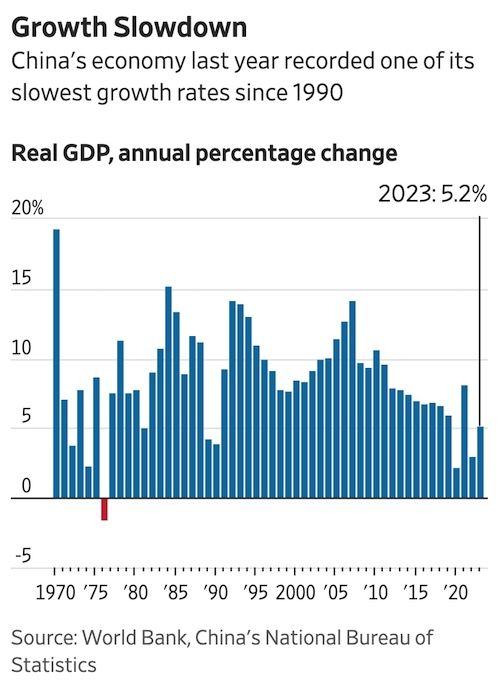
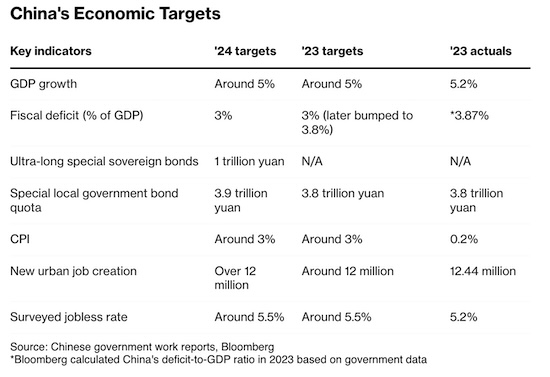
|
ENERGY & CLIMATE CHANGE |
— Recent assessment shows 22% drop in U.S. soybean oil carbon footprint. A recent Life Cycle Assessment conducted by Sustainable Solutions Corporation (SSC) for the United Soybean Board (USB) and the National Oilseed Processors Association (NOPA) reveals a significant 22% reduction in the carbon footprint associated with U.S. soybean oil production from 2015 to 2021. This decrease is attributed to improvements in cultivation, harvesting, transportation, and processing stages of soy production. The findings are particularly relevant as soybean oil serves as a crucial feedstock for biodiesel, renewable diesel, and sustainable aviation fuel (SAF) production in the United States.
Soybean production and oil processing contribute over 40% of the carbon intensity (CI) score for soy biodiesel. The documented improvements are expected to result in reduced CI across the clean fuels industry. Clean Fuels Alliance America facilitated the alignment of collected data with specifications for the GREET model, ensuring seamless integration for model updates by Argonne National Laboratory.
Veronica Bradley, Environmental Scientist at Clean Fuels Alliance America, expressed anticipation for the GREET model updates to reflect the latest industry improvements, underscoring the collaborative effort towards enhancing sustainability in the clean fuels sector.
Link to the Life Cycle Assessment of U.S. Soybeans, Soybean Meal, and Soy Oil report.
|
LIVESTOCK, NUTRITION & FOOD INDUSTRY |
— President Biden will hold a meeting this afternoon of his Competition Council to announce “new actions to lower costs for hardworking families by fighting corporate rip-offs.” Biden is launching a pricing "strike force" led by the DOJ and FTC to tackle unfair and illegal pricing practices across various sectors, including food and groceries. The interagency effort will target corporations engaging in anti-competitive behavior, aiming to lower prices for American consumers. Link to White House Fact Sheet.
USDA as part of this effort announced the finalization of a new rule (link) called "Inclusive Competition and Market Integrity Under the Packers and Stockyards Act," aimed at promoting fair competition and preventing discrimination, retaliation, and deception in contract farming. This rule will become effective 60 days after its publication in the Federal Register (link). Link to info about poultry contracting rule.
The rule, effective May 6, is part of President Biden’s efforts to promote competition in various sectors of the economy, and includes agriculture, establishes clearer standards to govern livestock and poultry markets. It aims to address issues faced by producers and growers due to market consolidation over the past three decades, providing them with better access to economic opportunities.
USDA Secretary Tom Vilsack emphasized the importance of eliminating discrimination, retaliation, and deception in agricultural markets, stating that such practices hinder fair access to economic opportunities for producers and growers. He highlighted the Biden-Harris Administration's commitment to building fairer and more competitive markets for farmers, ranchers, and producers.
The rule prohibits adverse treatment of producers and growers based on various factors such as race, religion, sex, disability, and age. It also prohibits retaliation against producers and growers for engaging in protected activities and prohibits the use of false or misleading statements in contract formation.
Andy Green, USDA's Senior Advisor for Fair and Competitive Markets, emphasized the need for competitive markets with integrity to ensure the best products and competitive prices for consumers. The rule supports USDA monitoring, evaluation, and enforcement of compliance through recordkeeping requirements.
This rule is part of a series of initiatives under the Packers and Stockyards Act aimed at enhancing transparency, stopping discrimination, and promoting market fairness in agricultural sectors. More information about the final rule is available on the Agricultural Marketing Service's Inclusive Competition Rule website.
— Vilsack and FTC chair address nutrition and competition concerns in food industry. During a School Nutrition Association meeting in Washington, USDA Secretary Vilsack engaged with hundreds of school nutrition professionals regarding the USDA's proposed rule aimed at reducing sodium and sugar in school meals. The School Nutrition Association opposes this rule, expressing concerns about decreased appeal and increased costs associated with implementing healthier meals.
During a question-and-answer session, Jeanne Reilly, a Maine nutrition professional, questioned the necessity of changing guidelines that were successful in reducing childhood obesity. She suggested focusing on children's mental health and physical activity instead. Her sentiment received enthusiastic support from the audience.
More concerns noted. Nichole Taylor, director of food services in Pennsylvania's Chichester School District, emphasized concerns about reduced sugar requirements, particularly in maintaining students' interest in school meals compared to sugary products available at home.
Vilsack defended the proposed changes, emphasizing their potential to combat childhood obesity and prevent future health issues. However, he acknowledged the stress faced by school meal professionals and emphasized the importance of a gradual transition and following scientific evidence.
Vilsack also discussed USDA efforts to address federal reimbursement rates for school meals and other related issues, including funding sources amid rising food and labor costs.
Separately, Federal Trade Commission (FTC) Chair Khan addressed market access and competition concerns, particularly in the grocery industry. She highlighted the FTC's scrutiny of the proposed Kroger and Albertsons merger, aiming to prevent price increases and wage depression. Khan also mentioned the FTC's renewed focus on enforcing the Robinson-Patman Act to combat price discrimination, especially beneficial for smaller grocery stores competing with larger chains.
Additionally, Khan addressed the "right to repair" issue, expressing the FTC's commitment to act against practices that hinder competition and lead to waste by limiting consumers' repair options.
|
POLITICS & ELECTIONS |
— Supreme Court rules states cannot enforce the 14th Amendment to disqualify former President Donald Trump from their primary ballots for "engaging in insurrection." The decision in Trump v. Anderson reverses disqualifications in Colorado, Illinois, and Maine. While the overall judgment was unanimous, four justices disagreed with the extent of the ruling, stating that Congress must pass legislation for the 14th Amendment to apply to federal candidates.
Details: The ruling says that a state can’t disqualify a presidential candidate, in part because it doesn’t have that power and in part because having such power would lead to chaos. “It would be incongruous to read this particular Amendment as granting the States the power — silently no less — to disqualify a candidate for federal office,” the ruling says. The ruling notes that allowing the states such power could lead to a “patchwork” approach, in part because states handle such matters in varying ways. “An evolving electoral map could dramatically change the behavior of voters, parties, and States across the country, in different ways and at different times,” the ruling says. “The disruption would be all the more acute — and could nullify the votes of millions and change the election result — if Section 3 enforcement were attempted after the Nation has voted.” It added: “Nothing in the Constitution requires that we endure such chaos — arriving at any time or different times, up to and perhaps beyond the Inauguration.”
Comments: This sounds like the approach the SCOTUS should have taken relative to its verdict on California Proposition 12.
Meanwhile, five justices went further, ruling that the 14th Amendment is not “self-executing” — that it needs Congress to enforce it.
— Sen. John Thune says he hopes to replace Sen. Mitch McConnell (R-Ky.) as the Republican leader in the Senate, Dakota News Now reports (link) citing an interview with Thune (R-S.D.). Thune said “That’s a vote that doesn’t happen until after the November election. It’s a vote where it’s basically, the voters are going to be Republican senators, and hopefully we’ll have a few more of those after this election. So, you got to make the argument. I’m meeting with my colleagues, hearing from them about what they want to see in the next leader, what they want to see in terms of the future of the country, and if we get the majority, what we might want to do in terms of an agenda. For me, it’s really about trying to be a difference-maker. I think I have something to contribute there. I think we’re ready for a new generation of consistent, principled, conservative leadership for Republicans in the United States Senate that empowers our individual members, gets back to doing things under regular order, which has gone by the wayside under the leadership of Chuck Schumer (D-N.Y.) as he’s been the majority leader. I think this is a real opportunity. Any transition is a chance for a reset. In my view, this is a chance for a reset, and I’d like to be a part of it.”
Dakota News Now asked: “He’s taken a swipe at you publicly in the past. Have you two talked at all this election cycle about anything?
Thune: “We talked a week ago and had a nice conversation. Obviously yeah, he’s taken some swipes. He takes swipes at a lot of people, so I’m not alone in that. I just think in the end, I worked with him well when he was president before. I was whip, we pushed through 145 of his nominees to the federal courts, I was a key negotiator of the Tax Cuts and Jobs Act in 2017, which is one of his signature achievements. So, there’s a record of working together. I sort of take it with a grain of salt, the things that he says. I know he’s going to say things and there’s nothing I can control about that, but as I think about the job I have right now and the one I aspire to, I’m going to need to be able to work with the president, and I think he’s got a very good shot at being the next president.”
Thune joins Sen. John Cornyn (R-Texas) in officially declaring his candidacy.
Of note: Senate GOP Conference Chair John Barrasso (R-Wyo.) has decided to run for whip next Congress, taking a pass on a race for leader and boosting Thune as the frontrunner.
Trump quietly has been urging Sen. Steve Daines (R-Mont.) to run for GOP Senate leader — and was doing so even before Sen. Mitch McConnell (R-Ky.) announced he was stepping aside as leader, Axios previously reported.
Most GOP senators are remaining neutral as they await other candidates. But Thune has already picked up endorsements from Sens. Mike Rounds (R-S.D.) and Markwayne Mullin (R-Okla.).
— Today's Super Tuesday primaries are poised to solidify Donald Trump's path to the Republican nomination, positioning him for a contentious rematch against President Joe Biden in what is anticipated to be the longest general election battle in recent U.S. history. With voters in 15 states participating, Trump is expected to secure a decisive victory over his final GOP challenger, Nikki Haley, effectively ending her White House aspirations. This outcome sets the stage for a November showdown characterized by public dissatisfaction with both candidates, as polls indicate a reluctance among voters for the impending race between Trump and Biden.
Of note: More than 800 Republican delegates are up for grabs today, almost all of which will be awarded to the state winner.
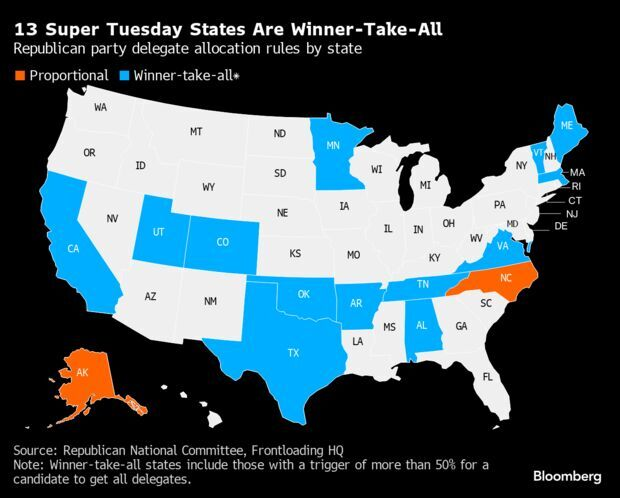
|
KEY LINKS |
WASDE | Crop Production | USDA weekly reports | Crop Progress | Food prices | Farm income | Export Sales weekly | ERP dashboard | California phase-out of gas-powered vehicles | RFS | IRA: Biofuels | IRA: Ag | | Russia/Ukraine war, lessons learned | | SCOTUS on WOTUS | SCOTUS on Prop 12 pork | New farm bill primer | | Gov’t payments to farmers by program | Farmer working capital | USDA Ag Outlook Forum |




